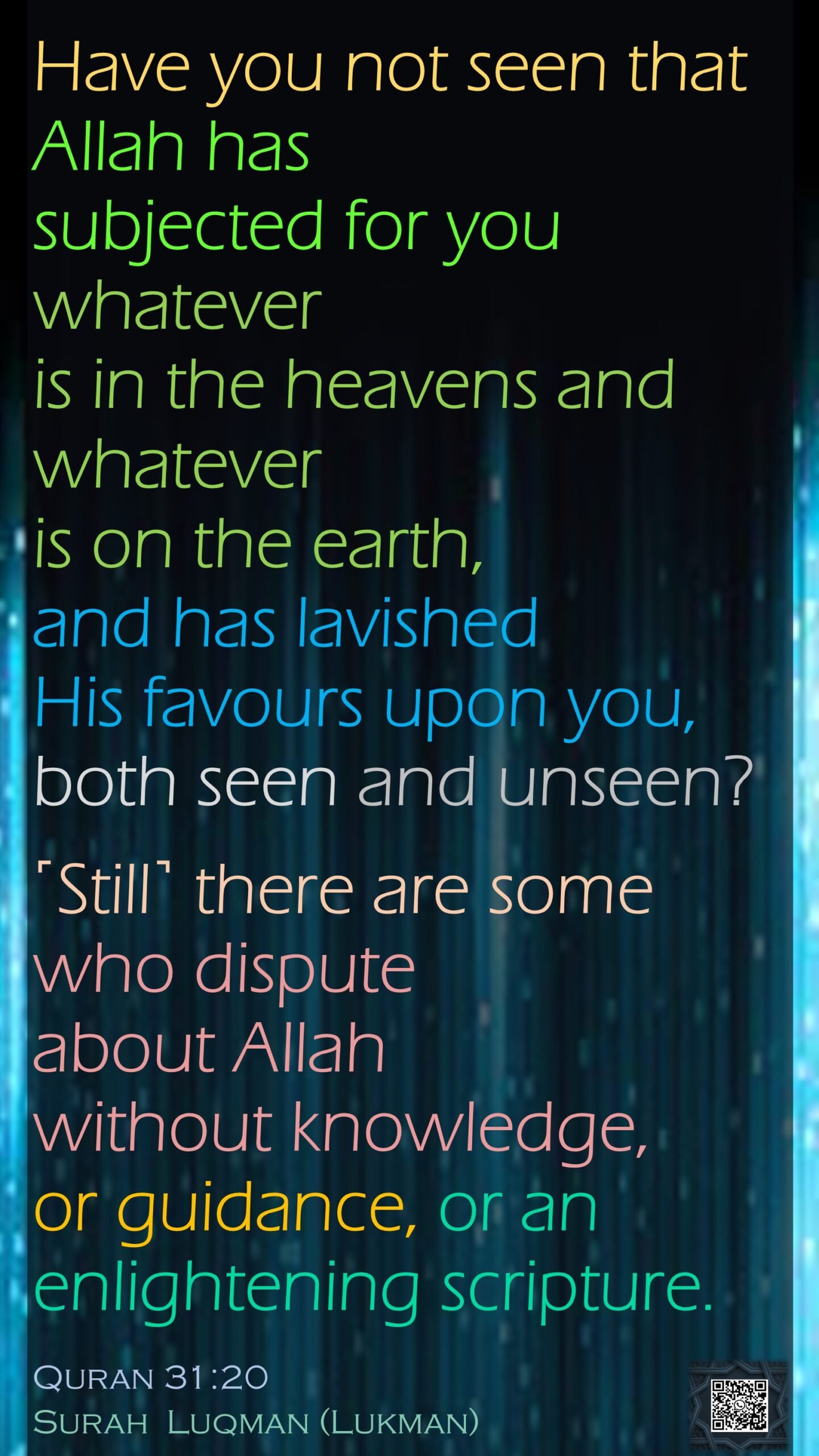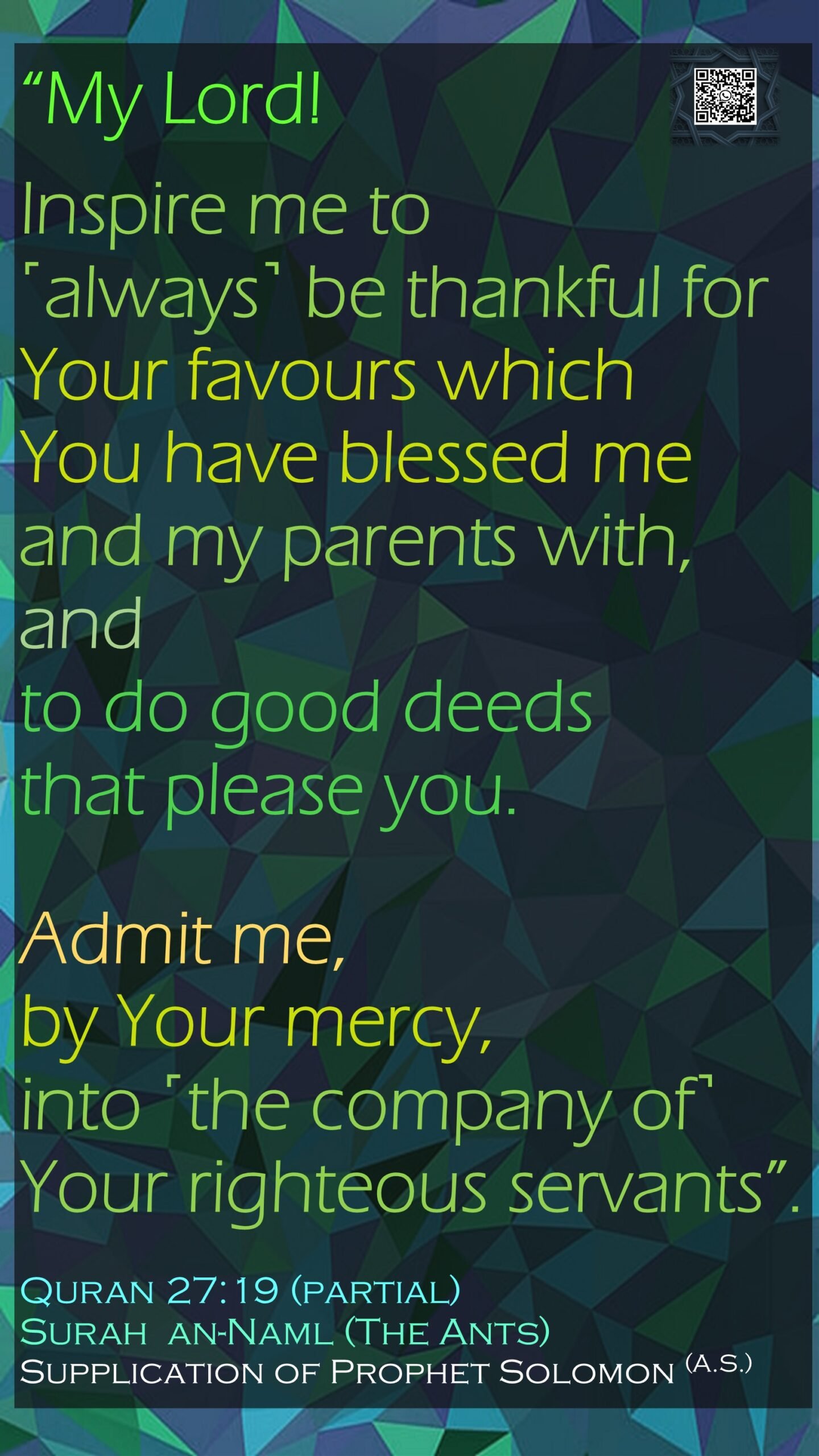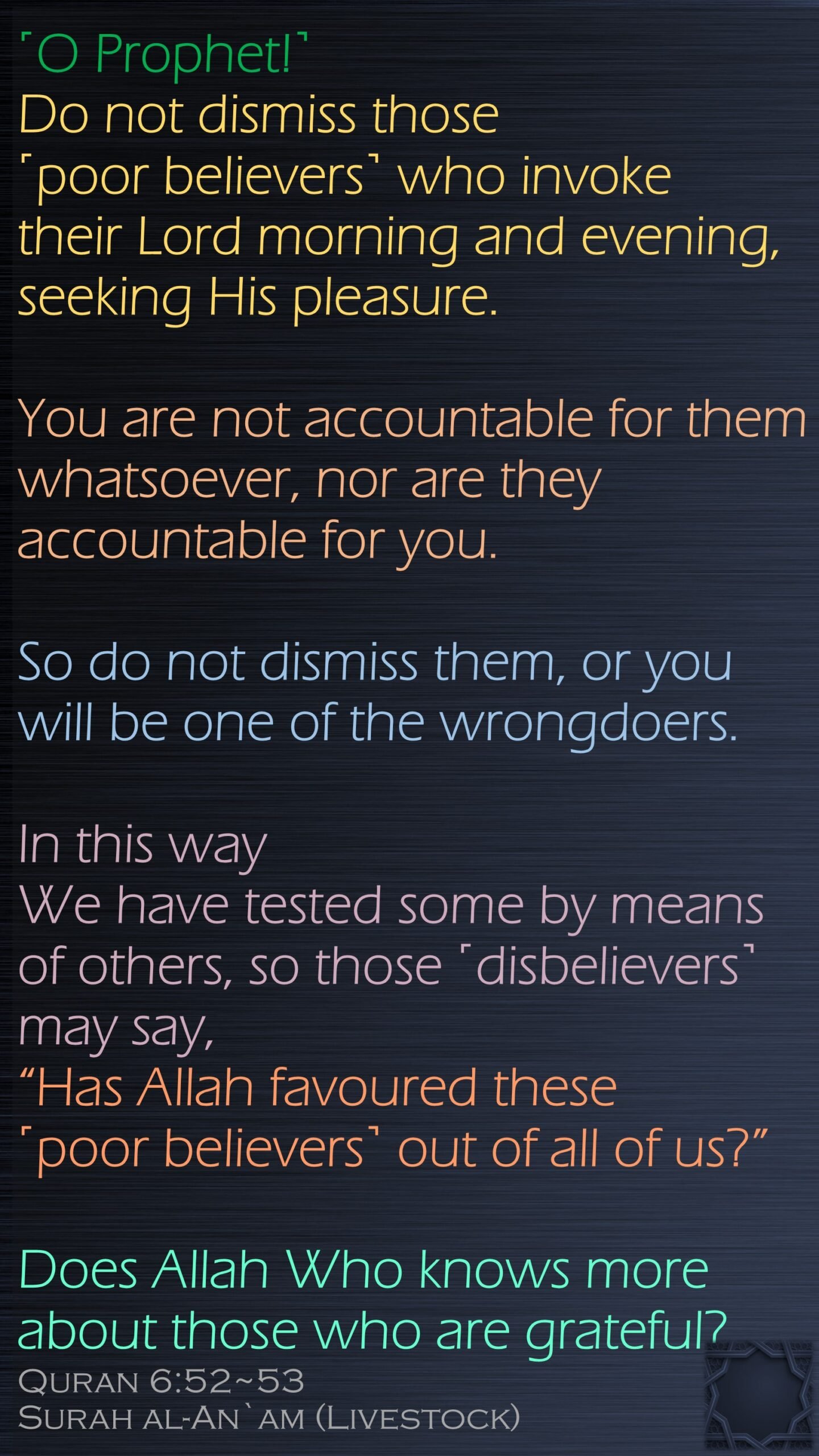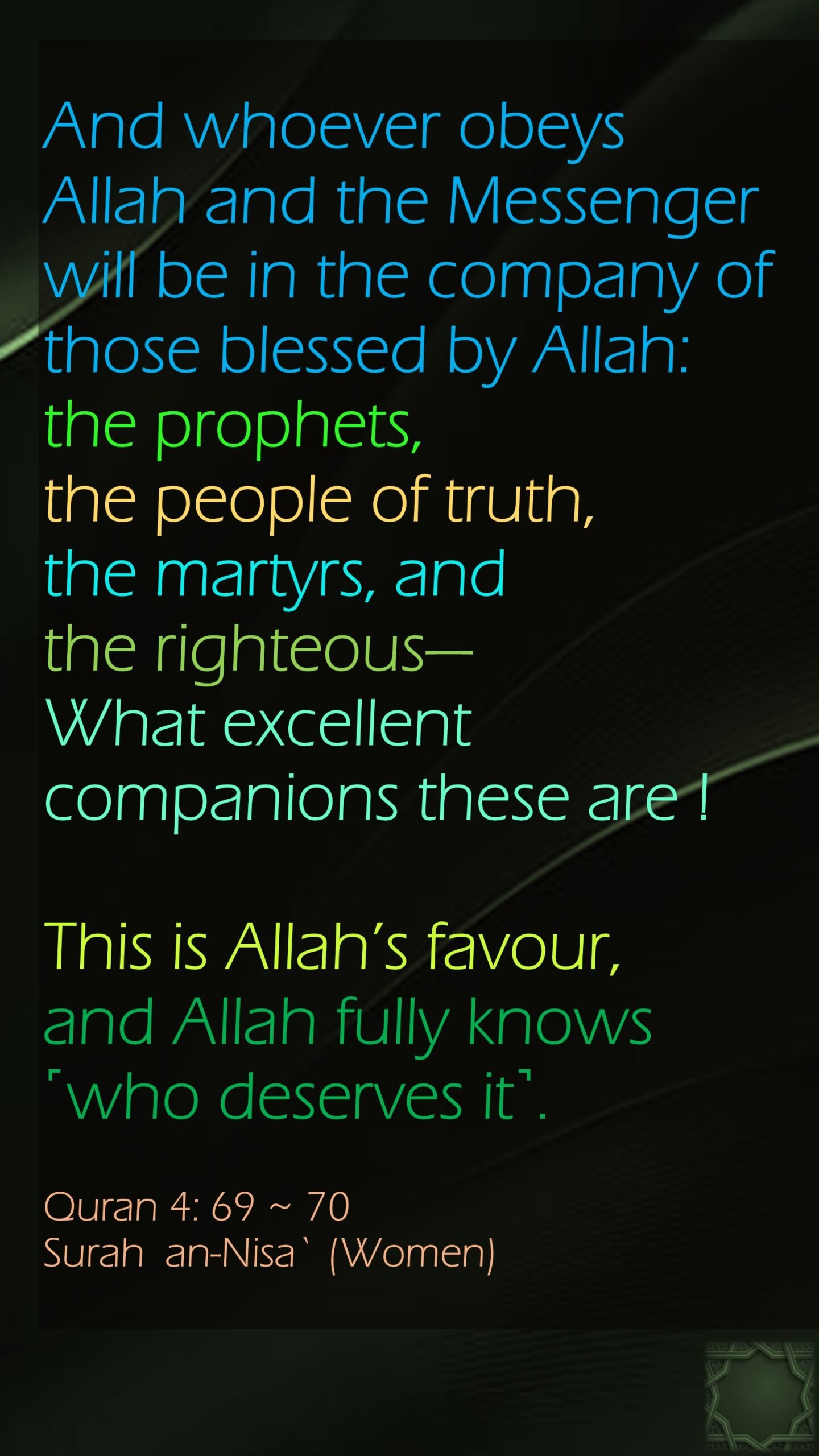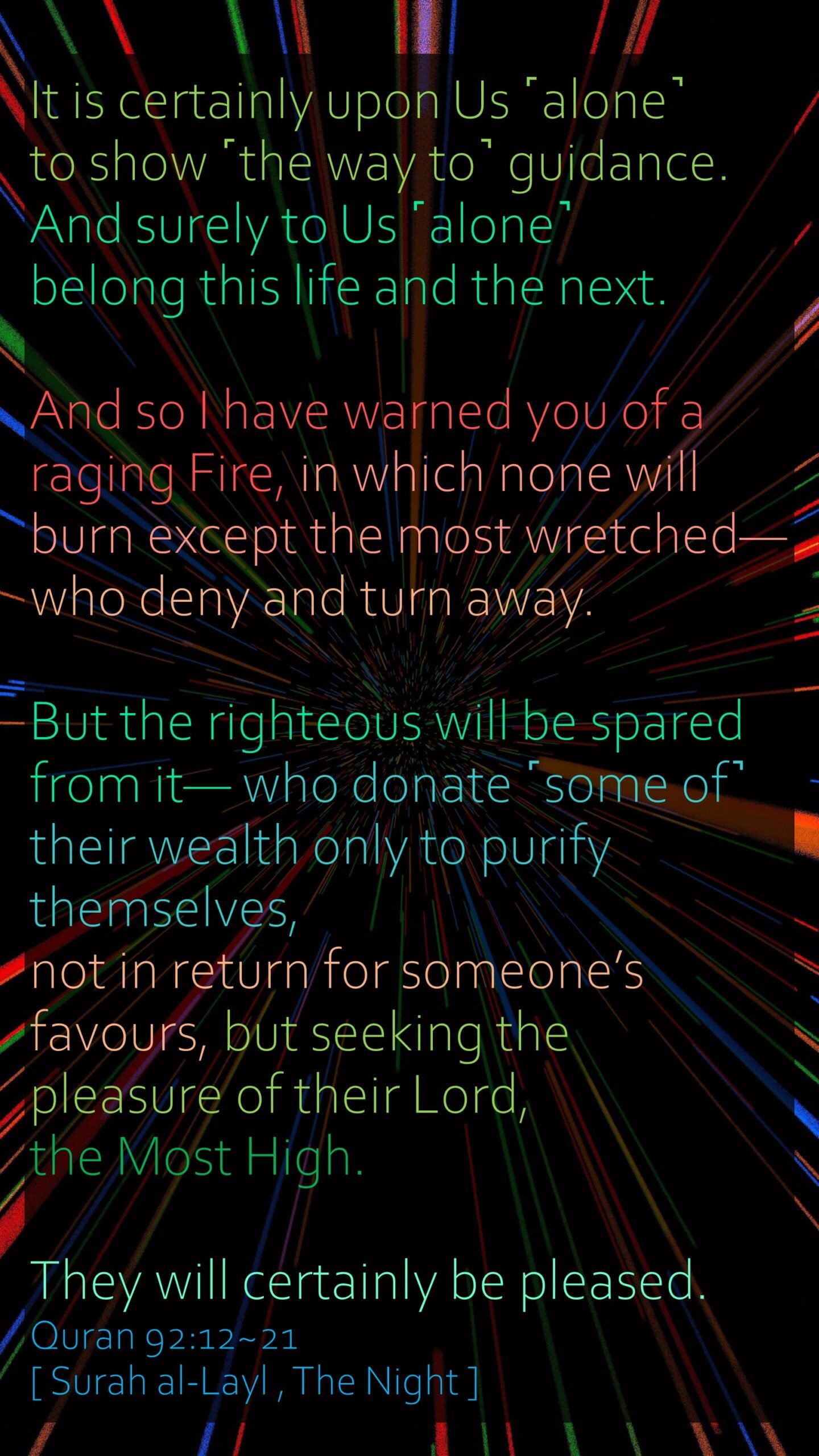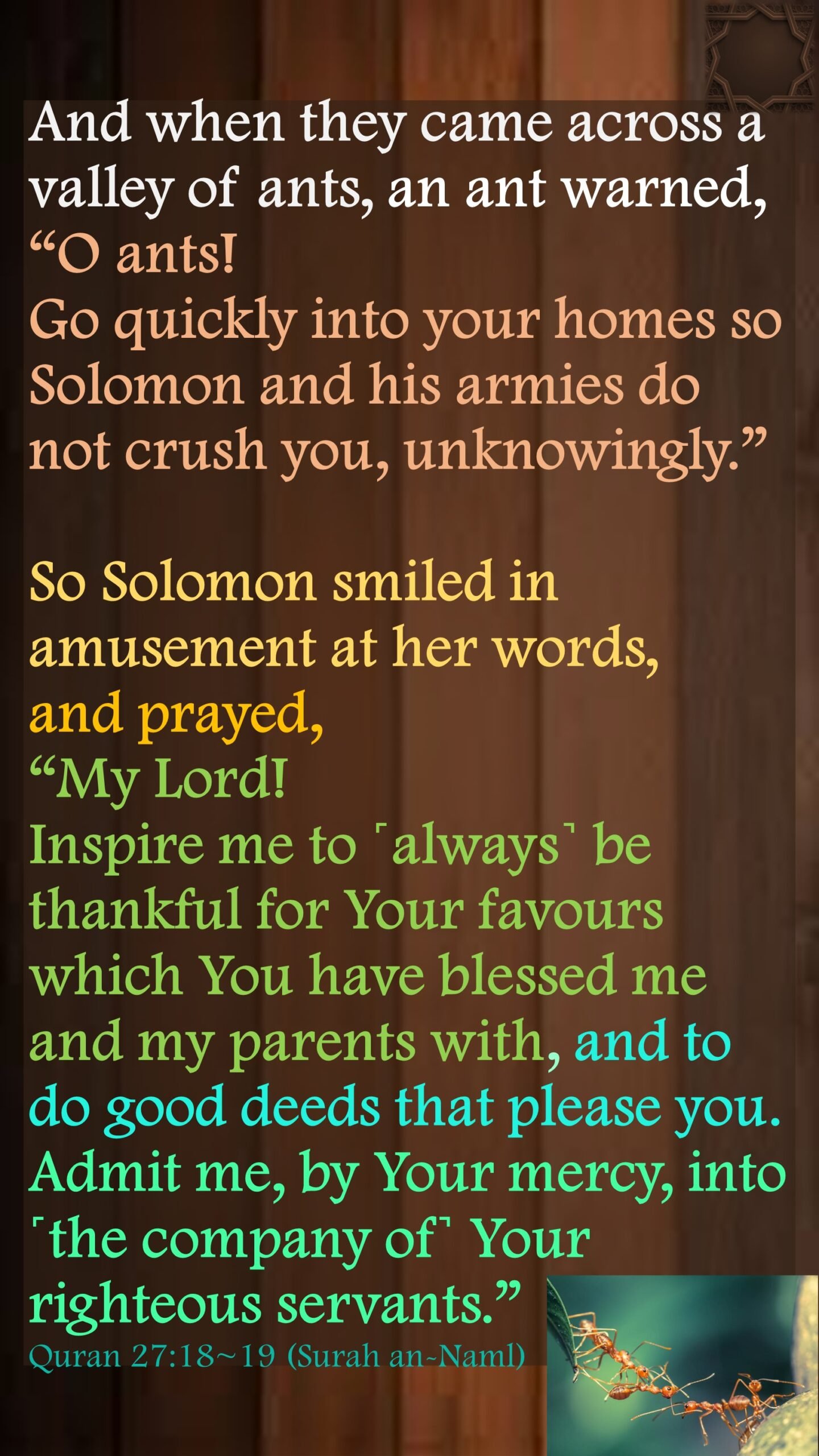Skip to Content
Tag Archives: favor
- Home -
- Posts tagged "favor"
31
Jan, 2026
Islam, Quran
020, 031, Allah, ayat, dispute, earth, enlighting, favor, favour, guidance, heavens, inspirations, islam, islamic, knowledge, knowlegeable, lavish, lavished, Lukman, Luqman, man, Muhammad, quran, scripture, seen, subjected, Surah, unseen, whateever
16
Jan, 2026
Islam, Quran
019, 027, Allah, ayat, daily, day, favor, favour, inspirations, islam, islamic, jinn.humans, Muhammad, Naml, partial, quran, Surah
31
Jan, 2025
Islam, Quran
017, 093, act, arrogant, ayat, children of Bani Israel, daily, evil, favor, favour, inspirations, islam, islamic, Isra, israelites, journey, lose hope, Muhammad, night, people, quran, Surah, toch, turn away
4
Nov, 2024
Islam, Quran
006, 052, accountable, al-anam, Allah, ayat, believer, chosen, Criteria, daily, disbeliever, dismiss, evening, favor, favour, goodness, grateful, inspirations, invoke, islam, islamic, morning, Muhammad, ones, poor, quran, rich, selection, Surah, test, wrongdoer
12
Oct, 2024
Islam, Quran
016, 114, alone, an-Nahl, ayat, Bee, daily, eat, favor, favour, good, grateful, halal, inspirations, islam, islamic, lawful, Muhammad, provide, quran, Surah, true, worship
16
Aug, 2024
Islam, Quran
004, 69, 70, Allah, An-Nisa, ayat, Blessed, company, daily, deserve, excellent, excellent companions, favor, favour, inspirations, islam, islamic, knowledge, martyrs, messenger, Muhammad, people of truth, prophets, quran, righteous, Surah, women
24
Nov, 2023
Islam, Quran
afterlife, al_layl, Allah, ayat, daily, donate, favor, Heaven, hell, inspirations, islam, islamic, Life, Lord, Most High, Muhammad, pleased, pleasure, purify, quran, spared, Surah, The Night, warn, wealt, wretched
14
Jun, 2023
Islam, Quran
Allah, ayat, believe, book, daily, explain, favor, guide, inspirations, islam, islamic, knowledge, mankind, Mercy, quran, Surah, truth
2
May, 2023
Islam, Quran
Allah, Blessing, desperate, dua, favor, favour, good, Hazrat, inspirations, islam, islamic, Lord, Mercy, Moses, Musa, need, Prophet, quran, supplication, Surah
7
Apr, 2023
Islam, Quran
admit, Allah, always, an-Naml, ant, army, ayat, Blessed, Chapter 27, company, crush, daily, deeds, favor, grateful, inspirations, inspire, islam, islamic, Jannat, Mercy, paradise, PBUH, please, prayer, Prophet, quran, righteous, servants, smile, Solomon, Surah, thankful, Verse 18, verse 19, you

